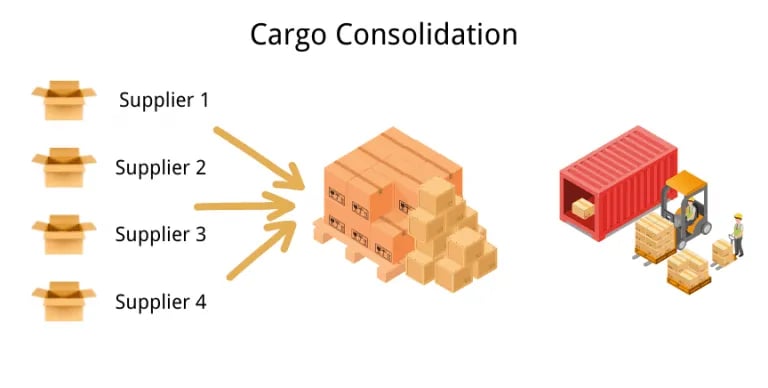Cargo consolidation
3/20/20241 min read


Cargo consolidation, also known as freight consolidation, is a logistical process wherein multiple smaller shipments from different shippers are combined into one larger shipment. This combined shipment is then transported to the same destination. The importance of cargo consolidation lies in its ability to significantly reduce shipping costs, expedite transit times, and enhance the overall efficiency and safety of the shipping process.
Here's a concise breakdown of cargo consolidation and its significance:
Lower Shipping Rates: By consolidating shipments, shippers only need to pay for the weight of their package and its distance to the destination. Sharing the transportation costs with other shippers leads to substantial savings.
Quicker Transit Time: Consolidated shipments often take more direct routes, resulting in faster transit times compared to individual shipments. This helps meet delivery deadlines and reduces transportation costs.
Enhanced Safety: Consolidated cargo is handled with care to minimize the risk of damage during transit. With fewer touchpoints and streamlined processes, the likelihood of damage is reduced, ensuring that goods reach their destination safely.
Cost-Efficiency: Consolidation allows businesses to save money by sharing the expenses associated with shipping. This is particularly beneficial for small businesses or startups that may not have the resources to cover the entire cost of shipping.
Flexible Shipping Options: Cargo consolidation offers various shipping methods, including ocean shipping, air shipping, and ground shipping. Shippers can choose the most suitable option based on their requirements and budget.
Improved Inventory Management: By consolidating shipments, businesses can better manage their inventory and avoid stock shortages or excess inventory. This leads to more efficient operations and reduced storage costs.
Access to Quality Carriers: Working with reputable cargo consolidators ensures reliable transportation and delivery of goods. Building relationships with trusted carriers contributes to smoother logistics operations and customer satisfaction.
Overall, cargo consolidation provides numerous benefits, including cost savings, faster transit times, improved safety, and better inventory management. It is a practical solution for businesses looking to optimize their shipping processes and reduce expenses. By leveraging consolidation services, companies can achieve greater efficiency and competitiveness in the global marketplace.
